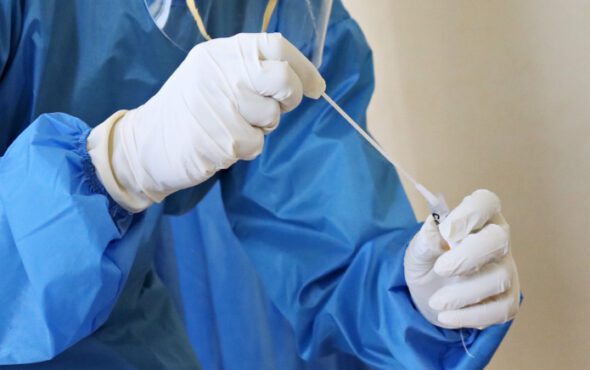
England saw record numbers of gonorrhoea and syphilis diagnoses last year, according to new figures released by the UK Health Security Agency (UKHSA).
There were 82,592 gonorrhoea cases in 2022, reflecting an increase of 50.3 per cent from the 54,961 diagnoses in 2021.
It marks the highest number of diagnoses in any single year since records began in 1918.
Data from the UKHSA also showed that infectious syphilis diagnoses increased by 15.2 per cent from 2021 (7,543 cases) to 2022 (8,692 cases).
Last year, there were more than 400 diagnoses of STIs made each day among young people – with those aged 15-24 still the most likely to be diagnosed with one.
The UKHSA is now urging people to get tested regularly when having sex with new or casual partners, as well as encouraging people to use condoms.
READ MORE: Only 20% of people in the UK know about PrEP, poll finds
It recommends that gay, bisexual and other men who have sex with men should get tested annually or every three months if having condomless sex with new/casual partners.
Women and other people with ovaries who are sexually active are encouraged to also get tested annually.
“More gonorrhoea diagnoses in 2022 than ever before”
“We saw more gonorrhoea diagnoses in 2022 than ever before, with large rises, particularly in young people,” Dr Hamish Mohammed, Consultant Epidemiologist at UKHSA, said.
“STIs aren’t just an inconvenience – they can have a major impact on your health and that of any sexual partners.
“Condoms are the best defence, but if you didn’t use one the last time you had sex with a new or casual partner, get tested to detect any potential infections early and prevent passing them on to others.
“Testing is important because you may not have any symptoms of an STI.”
In 2022, there were 2,195,909 diagnostic tests for chlamydia, gonorrhoea, syphilis or HIV performed by sexual health services, reflecting an increase of 13.4 per cent compared to 2021 (1,936,455).
The UKHSA said the rise in diagnoses could be the result of “increases in testing” but noted that “the scale of the increase in diagnoses strongly suggests that there is more transmission of STIs within the population.”
“Sexual health services and public health budgets have been cut to the bone”
Richard Angell, Chief Executive of Terrence Higgins Trust, the UK’s leading sexual health charity, said the figures are “a worrying testament to the fact that there is no vision or ambition for improving sexual health in England.”
“We’ve seen cuts where we need to see investment,” he continued. “This has reduced our sexual health services to a minimal disease management process. This cannot continue. If this were any other set of health conditions, there would be outcry and we’d see rapid action and much needed funding.”
READ MORE: Terrence Higgins Trust launches sexual health archive to mark 40 years of HIV/AIDS activism
He added that “sexual health services and public health budgets have been cut to the bone” which became clear during the recent mpox outbreak as sexual health clinics were “unable to provide HIV and STI testing, HIV prevention and access to contraception” in the most affected areas.
“Until sexual health is properly resourced – with an appointment easier to access than a – we won’t see the number of STIs heading in the right direction,” Angell continued, adding: “The Government urgently needs to set out what good looks like for sexual health. We’ve been waiting four years for Government’s sexual and reproductive health action plan and this latest data must come as a wake-up call to inspire action.”



